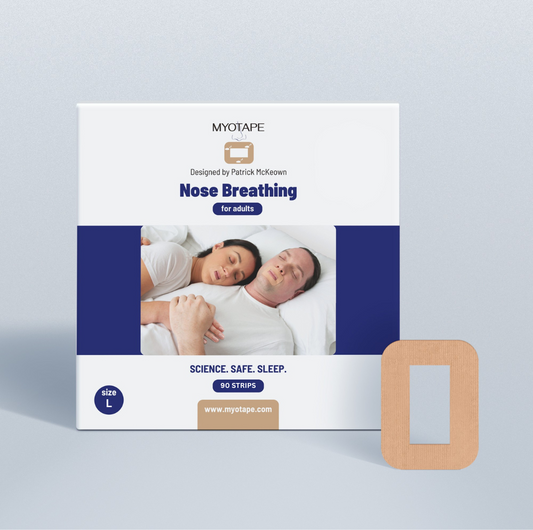Mouth breathing in children is more than just a habit; it can have significant implications for their cognitive and physical development. Children who breathe through their mouths often experience poor sleep quality, which can lead to various learning difficulties.
Here, we review key studies that explore the relationship between mouth breathing, sleep quality, and learning difficulties in children. But first, what causes mouth breathing and how is mouth breathing linked to sleep and learning difficulties?
Mouth breathing can occur due to several reasons, including nasal congestion, enlarged adenoids, or tonsils. When children breathe through their mouths, they bypass the nose’s natural filtering and humidifying functions, which can lead to health issues and affect their sleep quality. Poor sleep quality, in turn, impacts cognitive functions such as memory, concentration, and learning ability.
What Does The Science Say About This?
A 2013 study investigated the relationship between mouth breathing and learning difficulties in children (Fensterseifer etal., 2013). The study involved 48 children who underwent complete ear, nose, and throat examinations. Children with enlarged adenoids experienced greater learning difficulties compared to those with normal adenoids. Enlarged adenoids can obstruct nasal airways, forcing children to breathe through their mouths.
Furthermore, A 2010 study from the Faculties of Dentistry at Havana and Aden Universities explored the link between excessive daytime sleepiness and learning difficulties in children (Jefferson et al., 2013).
The study stated that children with excessive daytime sleepiness were almost 10 times more likely to have learning difficulties. This sleepiness is often a result of poor sleep quality due to obstructed airways, leading to mouth breathing.
And lastly, research by Triana et al., (2016) linked mouth breathing to a host or oral and medical conditions, especially among children.
What Does This All Mean?
From the studies, it is obvious that mouth breathing can significantly affect their overall health, sleep quality, and ability to learn. Even if your child does not have conditions like enlarged adenoids or tonsils or those mentioned in the studies, they might still be mouth breathing, which can disrupt their sleep and impact their cognitive development.
When kids breathe through their mouths, they risk getting conditions that could affect their lungs and breathing. This can lead to poor sleep quality, with frequent awakenings and restless nights. Poor sleep can then make it hard for them to focus, remember things, and learn effectively. Studies have shown that children who are mouth breathers are much more likely to have learning difficulties because of the daytime sleepiness caused by poor sleep.
As a parent, it is crucial to notice the signs of mouth breathing in your child. Look for symptoms like snoring, dry mouth, or waking up often during the night. Tackling mouth breathing early can greatly improve your child's sleep quality, which can boost their school performance and overall health.
To that effect, parents are encouraged to learn and engage these simple but effective breathing exercises for children. These exercises offer credible techniques that can unblock your child’s nose, sharpen their concentration, and boost their sleep quality.
You should also learn more about MyoTape for kids. Patrick McKeown, a renowned expert on respiratory health designed a gentle and safe mouth tape for kids; it is a useful tool that trains children breathe to through their nose at all times.
References:
Fensterseifer, Giovana Serrão, Oswaldo Carpes, Luc Louis Maurice Weckx, and Viviane Feller Martha. “Mouth breathing in children with learning disorders.” Brazilian journal of otorhinolaryngology 79, no. 5 (2013): 620-624.
https://pubmed.ncbi.nlm.nih.gov/24141679/
Jefferson Y. Mouth breathing: adverse effects on facial growth, health, academics, and behavior. Gen Dent 2010;58:18–25. https://pubmed.ncbi.nlm.nih.gov/20129889/
Triana, Bárbara Elena García, Ahlam Hibatulla Ali, and Ileana Bárbara Grau León. “Mouth breathing and its relationship to some oral and medical conditions: physiopathological mechanisms involved.” Revista Habanera de Ciencias Médicas 15, no. 2 (2016): 200-212.
http://scielo.sld.cu/pdf/rhcm/v15n2/rhcm08215.pdf








